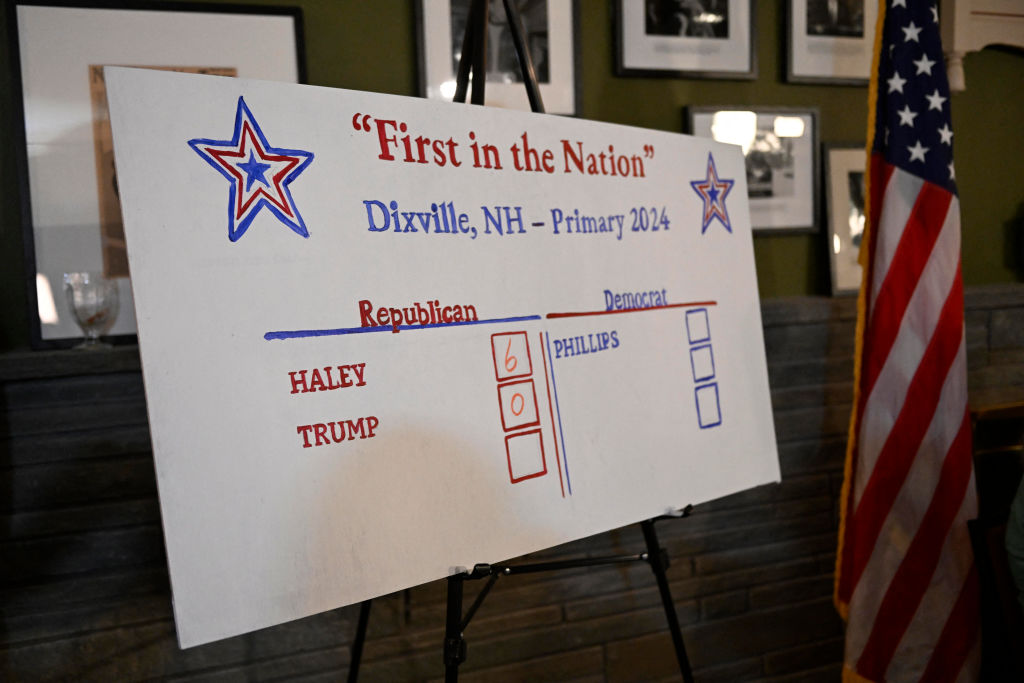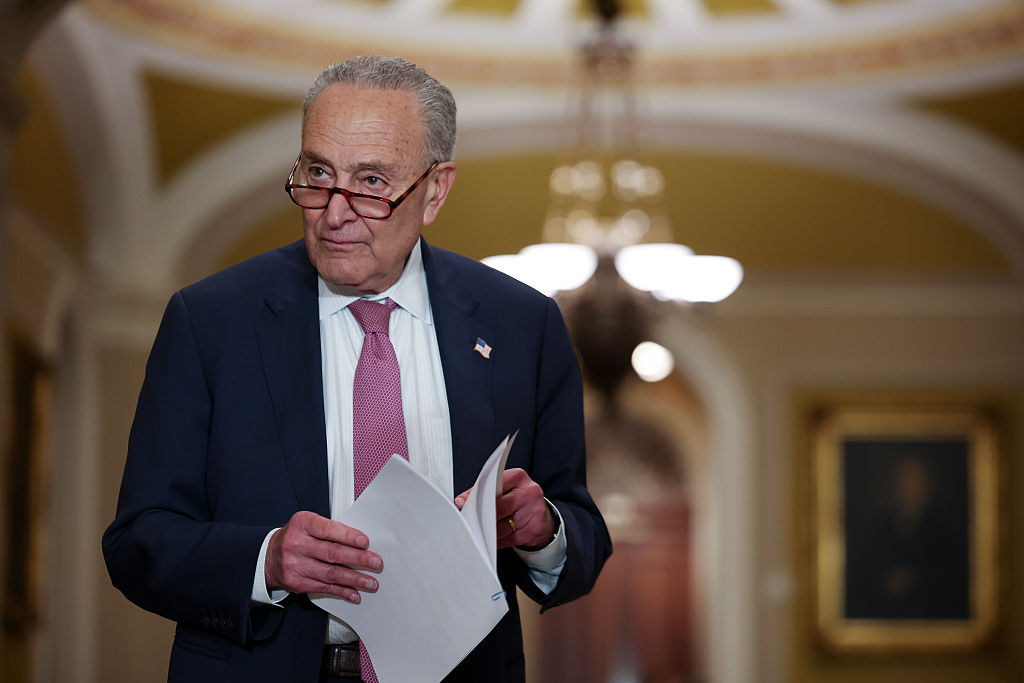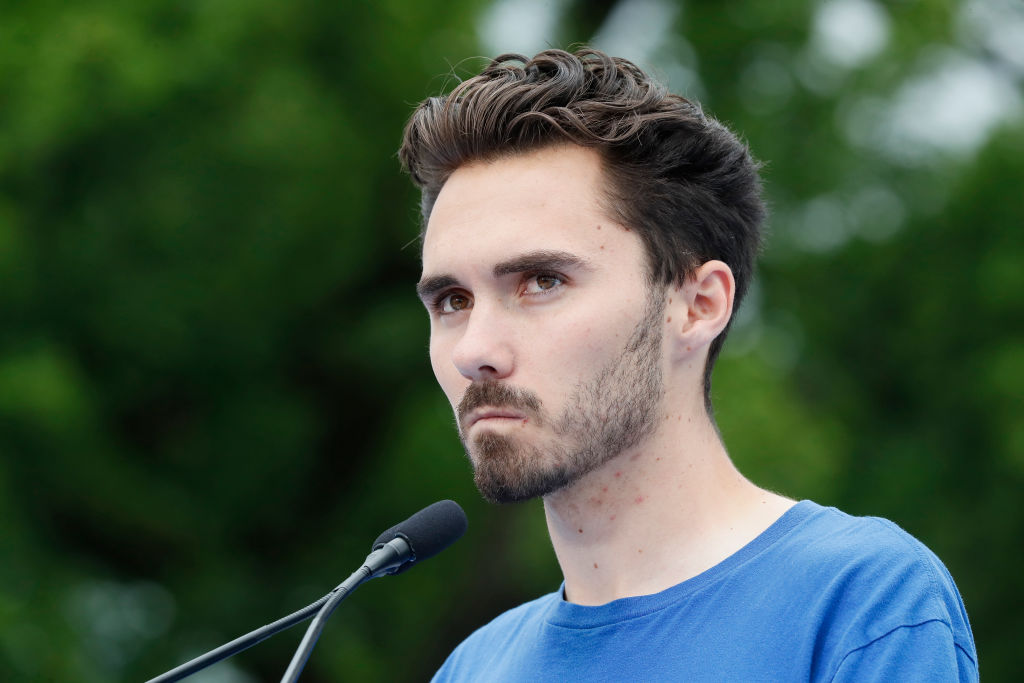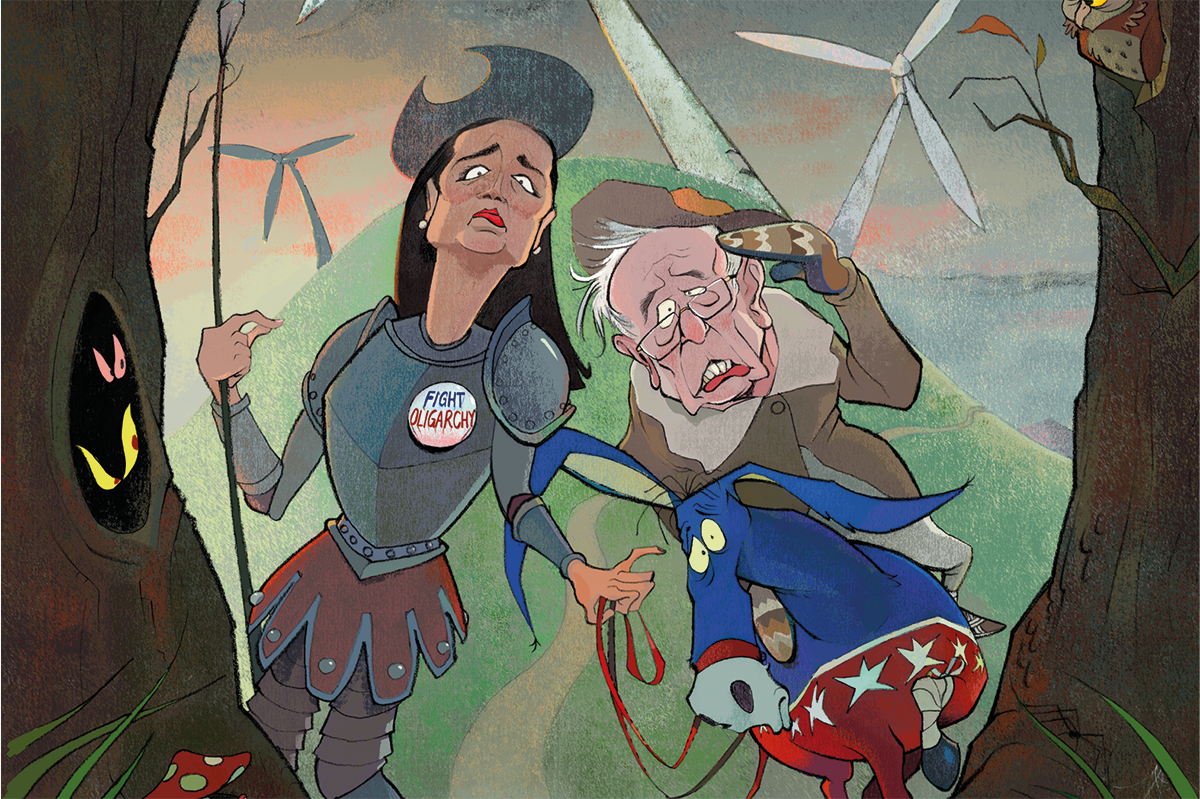Wisconsin was the Democratic establishment’s Waterloo in 2020. Even with the field consolidated behind Joe Biden, liberal operatives couldn’t shake the memory of Senator Bernie Sanders’s trouncing of Hillary Clinton. They needn’t have worried. On April 7, Biden cruised to victory with two-thirds of the vote; Sanders exited the race the next day. But beating back one worst-case scenario revealed a second. Primary turnout plummeted from 1 million in 2016 to a mere 875,000 in 2020 with the steepest drops coming in the voting blocs Democrats would need come November. Turnout in Green Bay, a sea of blue in an otherwise conservative county, didn’t just shrink relative to 2016; it came in 25 percent lower than the 2019 mayor’s race in which an ex-state rep triumphed over a Subway franchise owner. The civic embarrassment was easily predictable. We were five weeks into “Two Weeks to Stop the Spread” of Covid; college campuses were emptied as Bernie voters retreated to their parents’ lake houses to quarantine; public health authorities had yet to discover that rioting provided herd immunity. If something wasn’t done, Trump could yet again breach the blue wall of the Rust Belt.
Fresh from his victory over a sandwich artist, Green Bay mayor Eric Genrich had an idea — a brilliant one, it turned out. A month before primary day, he sued to strongarm the state into letting the city conduct an all-mail-in election. The case was laughed out of court, but it planted a seed. Sure, a small city mayor lacked the power and standing to unilaterally overturn state legislatures in the name of the Fourteenth Amendment, but a vast network of governors, billionaires, lawyers, civil rights organizations and political operatives? Those are just the sorts of people judges defer to.
Four years later, even President Biden and congressional Democrats have conceded the coronavirus panic is past its sell-by date. Faced with persistent inflation, liberals have let all those spending sprees, unemployment bonuses and hospital system cash grabs expire. But there is one Covid-era project they are hoping to make permanent. The “emergency” election procedures that Genrich chased eventually, in the hands of empowered bureaucrats, billionaire-backed nonprofits and governors, legislatures and judiciaries willing to run roughshod over statute and precedent, indeed helped deliver Joe Biden to the White House.
Both parties are well trained in the art of redistricting and gerrymandering, but 2020 made clear that oft-ignored state legislative bodies can play a role of supreme importance when it comes to the presidency. As the 2024 campaign hits its stride, state voting regulations loom larger than mere congressional maps, particularly in the battleground states.
Republicans and the Trump campaign were caught flat-footed by the deference courts showed to state executives during the pandemic, and none took greater advantage than Pennsylvania governor Tom Wolf. Statewide turnout increased 8 percent from Trump’s narrow election victory in 2016 as mass absentee voting was normalized. Mail-in ballots accounted for 39 percent of the statewide tally, but rose to about 50 percent in Philadelphia, which reported its highest turnout rate in a quarter century. Suburban Bucks County experienced a tenfold increase in mail-ins, which proved instrumental in Biden’s four-point victory over Trump there.
Wolf’s successor, Democratic rising star Josh Shapiro, sparked rumors of White House potential when he scored a knockout win in one of the most expensive races in the midterm election cycle. Election Day turned out to be the high point of his gubernatorial career thus far, as he oversaw the least productive legislative session in the last fifty years. He backtracked on a school choice bill that he campaigned on, leading to a budget standoff that wasn’t resolved for nearly six months. Having expended all his political capital wooing and then knifing Republicans in the state Senate, Shapiro began walking around Harrisburg touting his “GSD” record (the acronym stands for Gotten [Stuff] Done, rather than Getting So Desperate). At the top of the list: he made the dubious decision to bypass the legislature and unilaterally ram through automatic voter registration, in which the DMV is mobilized a get-out-the vote tool to expand registration for the lazy.
Meanwhile, Michigan Democrats did not have to violate the separation of powers to push through voting overhauls. Activists used ballot initiatives to push through a wish list that expands early voting, increases drop boxes and allows for the private funding of elections, which will go a long way to paying for the prepaid stamps Michigan is now required to provide any voter requesting a mail-in ballot. The measure passed 60-40.
Wisconsin Republicans made election reform a priority in the wake of the 2020 election, putting forward and passing nine separate bills that would have banned private election grants, verified the citizenship status of voters, narrowed the scope of absentee balloting and employed jury selection information rather than DMV records to verify registration. Democratic governor Tony Evers vetoed all nine bills in 2022.
Evers has done all he can to make permanent the Covid-era latitude he enjoyed after Mayor Genrich’s quixotic lawsuit. Much like Shapiro, he has used the Wisconsin Election Commission to push the limits on everything from drop boxes to mail-in balloting without legislative approval. The one thing standing in his way has been the tiny Wisconsin Institute for Law & Liberty, which managed to successfully challenge the WEC at every turn. But that was before the midterm elections, in which Democrats managed to flip control of the state Supreme Court. Expect the WEC to make another run at revisiting those post-2020 4-3 rulings.
Georgia famously enacted a number of election integrity reforms that expanded early voting, while strengthening voter ID and verification measures. You probably remember it as the “return of Jim Crow” and the departure of the MLB All-Star Game under direction of league commissioner and sworn enemy of baseball, apple pie and mothers, Rob Manfred.
Georgia’s fifteen minutes of hate helped pave the way for a number of other Republican reforms adopted in the wake of 2020. More than half the states in the country have passed strict bans on the private financing of elections after witnessing Mark Zuckerberg, Meta CEO and sworn enemy of human interaction, spend $400 million to turn election offices into left-wing get-out-the-vote operations. Green Bay, one of the top municipal recipients of Zuckerberg’s largesse, saw voter turnout shoot up to 84 percent in November 2020. The liberal haven that saw the bottom fall out in April 2020 saw turnout shoot up 12 percent after the influx of $1.6 million in private funding.
In 2024, Republican voters have a tool at their disposal that has been absent in recent years. Democrats have always had the upper hand when it comes to lawfare — you need look no further for proof than the 1982 consent decree brought on by a DNC lawsuit in New Jersey. The decree prevented the RNC from poll-watching and other pivotal Election Day activities until it expired in 2017. The GOP knows it is playing four decades worth of catch-up. Embattled party chair Ronna McDaniel has publicly committed to investing $30 million to finance poll-watching and litigation operations beginning in the 2022 cycle. The party has already engaged a small army of volunteer election attorneys. On paper they are prepared to outspend the DNC in the courtroom. But Josh Helton, the RNC advisor in charge of election integrity, knows it’s not so simple. Democrats can afford to skimp on litigation because they have effectively subcontracted it out to an activist class: the ACLU, NAACP, Marc Elias and a who’s who of election attorneys who have championed some of the most creative jurisprudence known to man. That’s not counting the addition of Merrick Garland, who has used the Department of Justice to scrutinize voter integrity laws wherever they arise.
“Litigation is an area where the RNC is uniquely situated because of expertise, because of resources, and because, oftentimes, other outside groups that can potentially engage can’ t because they don’t have standing,” Helton says.
The RNC is engaged in more than seventy legal challenges to Democratic election maneuvering, scoring major victories in Michigan, Pennsylvania, New York, North Carolina and Georgia, among others. The most important thing in Helton’s mind is that they have been able to be preemptive, rather than reactive. That could create a key difference from 2020, when many GOP lawsuits came too late. In a borderline case, judges of all stripes prefer to let elections play out sans the gavel.
“The real benefit of the proactive approach is not having to make decisions in the heat of the moment with all that spirit of national election barreling down on you, and it gives you the ability to sort of think a little bit more clearly and to be more strategic,” Helton says. “The most important thing is it gives you better chances, because judges really don’t like to grant extraordinary relief and take emergency action. The legal standard for it is so much higher on [Election Day].”
Democrats and their legal functionaries are not the only obstacles the RNC faces heading into Election Day. Several state parties, including in the pivotal swing states of Arizona and Michigan, are consumed by in-fighting and dysfunction that may carry through straight to November. The GOP is blasting out its legal victories and challenges far and wide as a rallying cry to unite the base or at least inspire cooperation at the state and local level.
“We interface very directly and regularly with all our grassroots organizers and organizations and people in the various states to become poll workers and poll watchers, and they have to have confidence that we’re putting together and conducting a program that they’re going to want to participate in,” says Helton.
Conservatives are sometimes undermined in this endeavor by their small government ideology, which sees election bureaucrats as cogs that merely gather and count papers or print out results from a machine. They look at low turnout and place the onus on the individual for failing to do his civic duty, or the party nominee for failing to motivate voters to show up on Election Day.
Liberals no doubt laugh at the poverty of the conservative imagination. Low participation can be sold to judges as symptomatic of poor governance — surely voters cannot be uninterested in politics or civic life, only disenfranchised. The technocratic and seemingly non-partisan nudges, of course, only seem to reward one side.
Over the next few weeks, the bloodshot eyes of the nation may all be fixed on the potential of a 2020 rematch. But the more interesting campaign battle may take place in the halls of Harrisburg and Madison, Atlanta and Lansing, where Helton and a newly formed band of lawyers and strategists may overcome the regulatory and judicial gains Democrats have so impressively amassed in recent years. The left may already have seen a blue wall built on geography and demographics collapse, but the temporary one built on emergency jurisprudence and a novel respiratory virus may prove sturdier.
This article was originally published in The Spectator’s February 2024 World edition.


























Leave a Reply